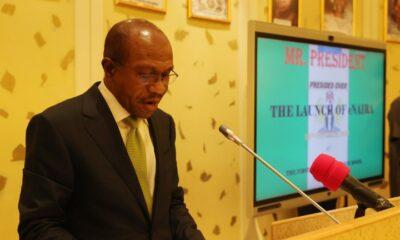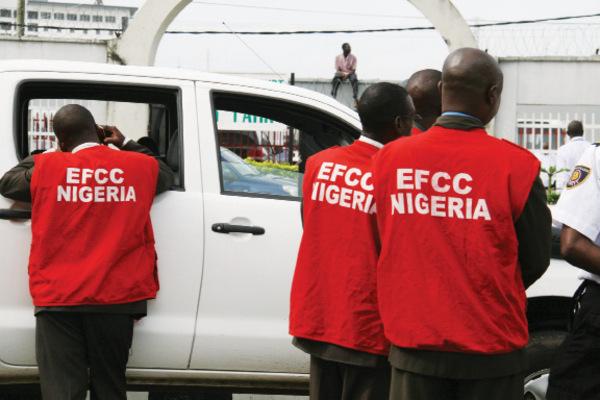Tensions escalated in the bustling Wuse Zone 4 Market as operatives from the Economic and Financial Crimes Commission (EFCC) conducted a raid targeting Bureau De Change (BDC) operators on Tuesday.
The raid, intended to curb illegal currency trading and enforce regulatory compliance, quickly turned confrontational, resulting in clashes between the EFCC agents and currency traders.
Eyewitnesses reported scenes of chaos as the operatives attempted to apprehend BDC operators, who resisted the arrests vehemently.
The situation escalated to the point where gunshots were fired, and vehicles belonging to the EFCC were damaged.
Two currency traders, speaking anonymously, confirmed the events, citing frustration and desperation among the traders as the underlying cause of the resistance.
According to one witness, who requested anonymity for fear of reprisal, the traders’ reaction was fueled by their perception that the EFCC’s arrests were becoming excessively frequent and motivated primarily by a desire to extort money from them.
“Yesterday (Monday), they arrested traders, but they faced resistance today. People are getting tired and desperate,” the witness explained.
Another trader echoed similar sentiments, warning that continued raids by the anti-corruption agency could escalate into violence and potentially lead to fatalities. “If this thing continues like this, that means they would kill people,” the trader cautioned.
The growing frustration among traders stems from their belief that the EFCC’s actions, which often culminate in monetary fines, serve more as revenue-generating measures than effective regulatory enforcement.
The EFCC’s resurgence in raiding activities is part of its broader efforts to stabilize the Nigerian naira and combat illegal currency speculation.
In recent weeks, the commission has intensified its crackdown on suspected currency speculators and fraudulent foreign exchange practices.
However, despite these efforts, the naira has continued to depreciate, reflecting the challenges facing Nigeria’s foreign exchange market.
Traders at the Wuse Zone 4 Market highlighted the market’s volatility, with fluctuations in exchange rates making it increasingly difficult to predict trading outcomes. One trader, identified as Malam Yahu, expressed concern over the market’s instability and the challenges it poses for traders.
“Right now, the market is just fluctuating, and the naira is not stable at all,” he lamented. Yahu highlighted the impact of the EFCC raids on trading activities, noting how traders refrained from transactions to avoid potential losses.
At the official market, data from the FMDQ exchange securities revealed a sharp depreciation of the naira, raising concerns about rapid fluctuations and market volatility.
The intraday high and low of the naira against the dollar further underscored the challenges facing Nigeria’s foreign exchange market.
As the EFCC continues its crackdown on illicit currency trading, the clashes in the Wuse Zone 4 Market serve as a stark reminder of the underlying tensions and frustrations prevalent among currency traders.
The agency faces the daunting task of balancing enforcement actions with addressing the root causes of illegal trading, amidst ongoing challenges in Nigeria’s foreign exchange market.






 Naira4 weeks ago
Naira4 weeks ago


 Naira3 weeks ago
Naira3 weeks ago




 Naira3 weeks ago
Naira3 weeks ago




 Naira3 weeks ago
Naira3 weeks ago




 Naira2 weeks ago
Naira2 weeks ago
 Commodities3 weeks ago
Commodities3 weeks ago


 Sport Business4 weeks ago
Sport Business4 weeks ago


 News3 weeks ago
News3 weeks ago

















